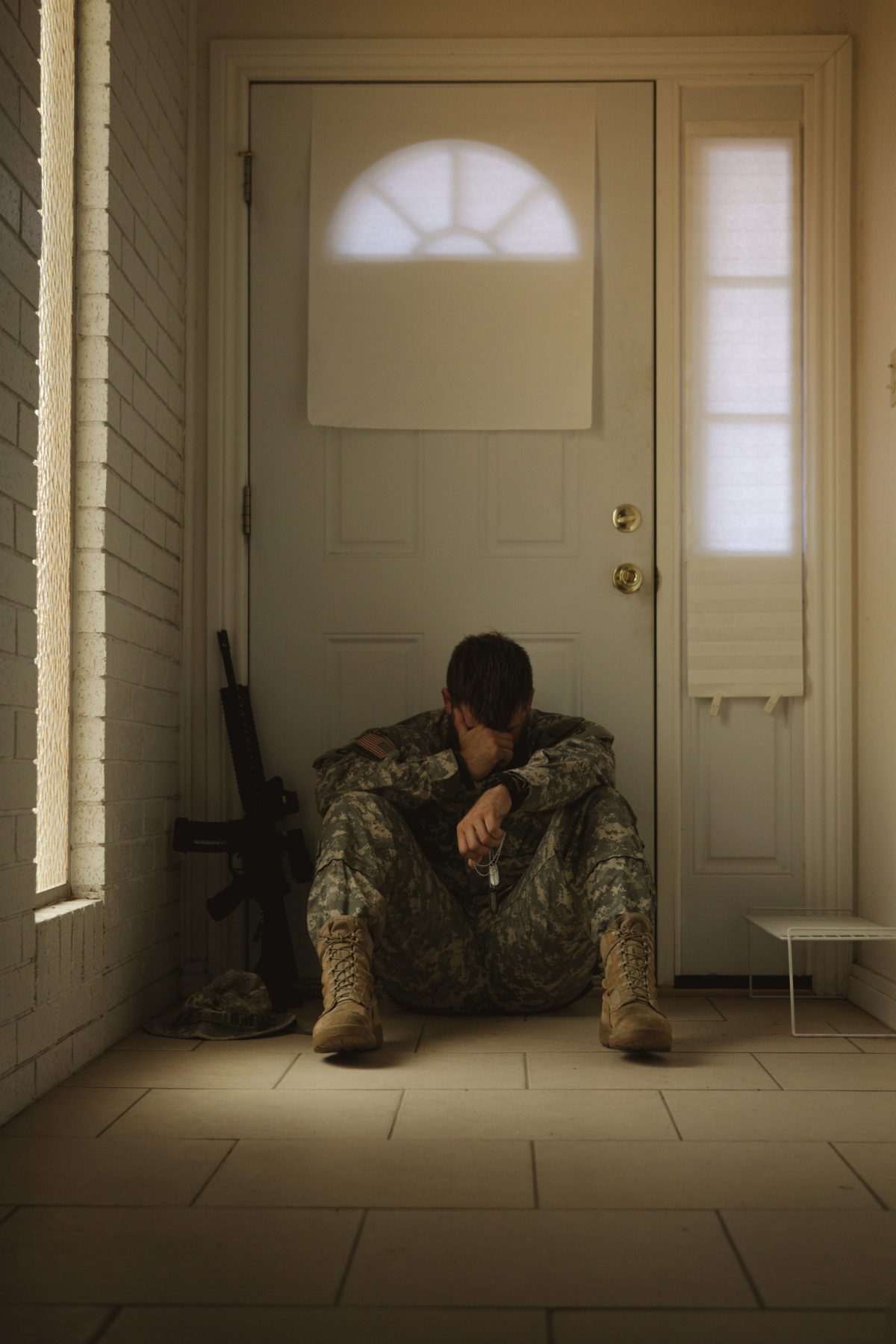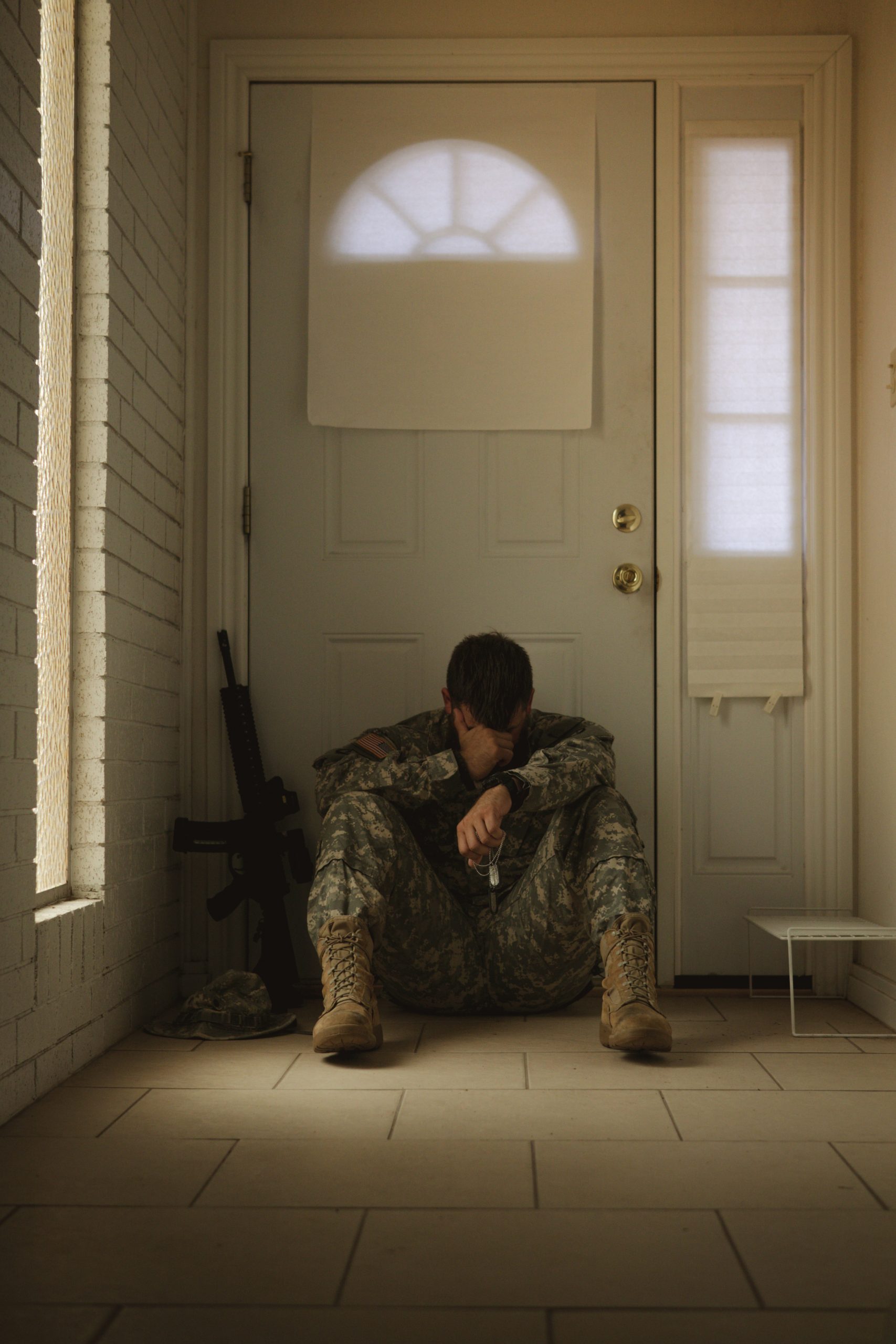Six Tips for Having Supportive Conversations with Veterans
 Veterans returning to civilian life often struggle to communicate with civilians about their experience as active military members, leaving them feeling isolated and disconnected. At the same time, civilians eager to engage with veterans may worry about saying the wrong thing, triggering past trauma, or otherwise having an unhelpful conversation.
Veterans returning to civilian life often struggle to communicate with civilians about their experience as active military members, leaving them feeling isolated and disconnected. At the same time, civilians eager to engage with veterans may worry about saying the wrong thing, triggering past trauma, or otherwise having an unhelpful conversation.
In our Veteran’s Day speaker series event, Femi Olukaya, a therapist and military veteran, and Teressa Carter, a social worker with experience serving and treating active duty service members, sat down to discuss this issue, among several others.
Take a deeper dive into their advice and explore six tips civilians can use to have healthy, supportive, and productive conversations with veterans about their experiences in the military below.
#1 Ask Them What They Want You to Know
As Carter points out, an easy way to avoid pressuring veterans to discuss issues they aren’t ready to discuss is to ask them what they want you to know. That way, you’ll only hear what they feel comfortable revealing and believe it would be most helpful for you to know.
# 2 Be Accepting
Military culture often discourages vulnerability. That’s why when a veteran decides to open up about their military experiences, it’s vital that you meet them with love and acceptance.
Aside from a culturally ingrained aversion to vulnerability, veterans are often reluctant to reveal what they’ve gone through because they fear judgment from civilians. Olukoya notes that:
When [veterans] say certain things, they don’t want to scare civilians with what they’ve seen, how they’ve lived, and how they think. So, they have to find a safe space where they can actually express themselves without being judged.
As a result, civilians must create an emotionally safe space for the veteran to speak in. Make it clear that you’ll be compassionate, empathetic, and understanding.
#3 Be Prepared to Discuss Trauma
Veterans may talk about the trauma they experienced as active military members. Civilians looking to engage with military members and learn about their experience must be prepared for this. As Carter points out:
You don’t ever want to knock on their door of trauma and open it if you’re not ready to receive and help them with it. So, while you’re inviting somebody to share their traumatic experience to feed your curiosity, you could be opening a deep wound for them. Are you going to be able to be there to heal it for them once you do?
Of course, civilians don’t need to be trained experts in handling trauma, but they must be prepared to discuss it in a sensitive, compassionate way.
#4 Don’t Minimize Their Experiences or Reactions
When hearing someone talk about a painful experience, you may feel tempted to encourage them to see things in a more optimistic light. While done with good intentions, this strategy is often counter-productive. From the veteran’s perspective, it can feel as though you are minimizing their problems or that you feel they are overreacting.
Instead of dismissing their feelings, validate them. Often, all someone in pain is looking for is a compassionate recognition of their suffering.
#5 Be Sincere
Sincerity is critical to having impactful conversations that help soldiers feel connected, heard, and valued. As a result, it’s important that when civilians ask veterans questions or express their gratitude, they do so sincerely. Veterans can often sense when a civilian’s attempt to engage with them is driven by a sense of obligation rather than genuine interest.
Olukoya points out that the phrase “thank you for your service” is a common example of an interaction that feels inauthentic.
I feel like 70 percent of veterans hate that statement because it feels like such a generic textbook thing to say whenever you meet somebody that’s served, so it turns into something that’s not even sincere.
Instead, he recommends saying, “I appreciate your sacrifice,” which he feels helps veterans feel “seen.”
One way to show sincerity during conversations is by listening actively (i.e., asking meaningful questions that show you are attentive and engaged). However, it is important to balance active listening by letting veterans tell their stories at their own pace and without excessive interruptions.
#6 Remain Mindful of What You Can’t Understand:
When a veteran is opening up about their experiences, Carter suggests it’s best to avoid the phrase “I understand.” But why is this true? Part of the answer is that, as a civilian, complete understanding isn’t possible. Some of their experiences are so drastically different from anything a civilian may have encountered that there is simply no way to truly comprehend what things were like for them or how they feel. As a result, it’s best to be mindful of your gaps in knowledge and understanding and avoid implying that you can really know what active military service was like for them.
If you feel you need to see a mental health professional or could use help deciding which service is right for you, please give us a call at 805-204-2502 or fill out an appointment request here. We have a wide variety of providers, including therapists, psychiatrists, nurse practitioners, and nutritional therapists, who can see you in as little as one day via teletherapy. If you feel a veteran is experiencing a crisis, please call the national suicide hotline (988).
Want to find out if Heading is right for you?
Complete our consultation form and an intake specialist will get in touch.





 Veteran’s Day allows us to explore and assess how we can better support our veterans, especially when navigating their mental health. Recent research suggests 11 to 20 percent of veterans experience post-traumatic stress disorder (PTSD) in a given year. Suicide rates of military service members and veterans are also at an
Veteran’s Day allows us to explore and assess how we can better support our veterans, especially when navigating their mental health. Recent research suggests 11 to 20 percent of veterans experience post-traumatic stress disorder (PTSD) in a given year. Suicide rates of military service members and veterans are also at an